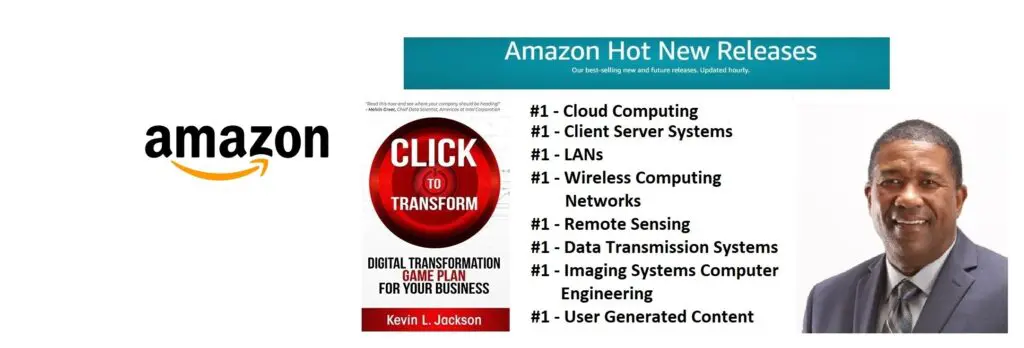Twitter Feed
Second Government Cloud Computing Survey
Earlier this week I had the pleasure of presenting at the Sys-con International Cloud Computing Expo in New York City. My presentation, The View from Government Cloud Computing Customers, reviewed…
An Ontology for Tactical Cloud Computing
This week I’ve had the pleasure of presenting at two fairly unique conferences. On Tuesday I was in San Diego at the Simulation Interoperability Standards Organization (SISO) Workshop. SISO is…
Federal Cloud Computing Roadmap
ServerVault, a long time provider of IT hosting services to the Federal government, has been discussing cloud computing quite a bit with their current (and future) customers. The repetitive nature…
Booz Allen Hamilton Lays Out Path To Cloud
Now that cloud computing is seen as a viable technology for the government marketplace, management consulting leader Booz Allen Hamilton is now providing cloud transition guidance. In his article “Cloud…
Is Sun Rising or Setting?
Today was strange. First Sun announces it’s open cloud computing platform. Sun Unveils Open Cloud Computing Platform “Sun on Wednesday announced plans to offer its own Open Cloud Platform, starting…
A Conversation with Emil Sayegh, Mosso General Manager
Last week, Mosso announced their new “Cloud Server” and “Cloud Sites” offerings. They also exited “Cloud Files” from beta, positioning themselves as a challenger to Amazon. With this as a…
Playing the Cloud Computing Wargame
Today at FOSE I tried my hand at balancing traditional IT, hybrid cloud offerings and commercial cloud offerings on a craps table. Just to set the scene, the Booz Allen…
Vivek Kundra Nominated for Federal CIO
Mr. Kundra’s quote from the Wall Street Journal says it all: “I’m a big believer in disruptive technology. If I went to the coffee shop, I would have more computing…
7th SOA for E-Government Conference
On April 28, 2009, Mitre will be holding its biannual SOA for E-Government Conference. This conference is one of the region’s premier opportunity for federal managers and MITRE Subject Matter…
4 Factors Driving Digital Transformation ROI
The critical assessment factors for cloud ROI risk probability are the following:
- Infrastructure utilization
- Speed of migration to cloud
- Ability to scale business/mission processes
- Quality delivered by the new cloud-based process
These four factors directly drive digital transformation ROI because they affect revenue, cost, and the time required to realize any investment return. Differences between actual and projected values in these metrics indicate a likely failure to achieve the desired goals.
Although business alignment is always a primary digital transformation drive, ROI remains a key decision component. This metric should, however, be addressed from multiple vantage points to include cloud workload utilization, workload size versus memory/processor distribution and the virtual hardware instance to physical asset ratio.
Value delivered through innovation should also be part of the business value calculation. Value can be delivered through operational cost reductions, optimization of resource capacity, and a reduced total cost of ownership. Business process time reductions, product quality improvements and customer experience enhancements are also useful outcomes.
Security Controls
Business/mission model changes can also introduce operational risk. Acceptance of these risk are based on executive risk tolerance. Their risk mitigation decisions result in the implementation of security controls. A control will restrict a list of possible actions down to what is allowed or permitted by the organization. Encryption, for example, can be used to restrict the unauthorized use of data.
The security control continuum extends over three categories:
- Management (administrative) controls: policies, standards, processes, procedures, and guidelines set by corporate administrative entities (i.e., executive to mid-level management)
- Operational (and physical) controls: operational security (execution of policies, standards and process, education, and awareness) and physical security (facility or infrastructure protection)
- Technical (logical) controls: Access controls, identification and authentication, authorization, confidentiality, integrity, availability, and non-repudiation
They also encompass the following types:
- Directive controls: often referred to as administrative controls, advise employees of the behavior expected of them during their interfaces with or use of information systems
- Preventive controls: include physical, administrative, and technical measures that preclude actions that violate policy or increase the risk to system resources
- Deterrent controls: use warnings and a description of related consequences to prevent security violations
- Compensating controls: Also called an alternative control, a mechanism that is put in place to address security requirements deemed impractical to implement
- Detective controls: Refer to the use of practices, processes, and tools that identify and possibly react to security violations
- Corrective controls: involves physical, administrative, and technical measures designed to react to a security-related incident in order to minimize the opportunity for an unwanted event to reoccur
- Recovery controls: restore the system or operation to a normal operating state once integrity or availability is compromised
The costs associated with the implementation of any security control should be weighed against the value gained from digital transformation business/mission process improvements.
Would you like to learn more about digital transformation innovation? Pick up a copy of my new book, Click to Transform!Â

Cloud Computing
- CPUcoin Expands CPU/GPU Power Sharing with Cudo Ventures Enterprise Network Partnership
- CPUcoin Expands CPU/GPU Power Sharing with Cudo Ventures Enterprise Network Partnership
- Route1 Announces Q2 2019 Financial Results
- CPUcoin Expands CPU/GPU Power Sharing with Cudo Ventures Enterprise Network Partnership
- ChannelAdvisor to Present at the D.A. Davidson 18th Annual Technology Conference
Cybersecurity
- Route1 Announces Q2 2019 Financial Results
- FIRST US BANCSHARES, INC. DECLARES CASH DIVIDEND
- Business Continuity Management Planning Solution Market is Expected to Grow ~ US$ 1.6 Bn by the end of 2029 - PMR
- Atos delivers Quantum-Learning-as-a-Service to Xofia to enable artificial intelligence solutions
- New Ares IoT Botnet discovered on Android OS based Set-Top Boxes
